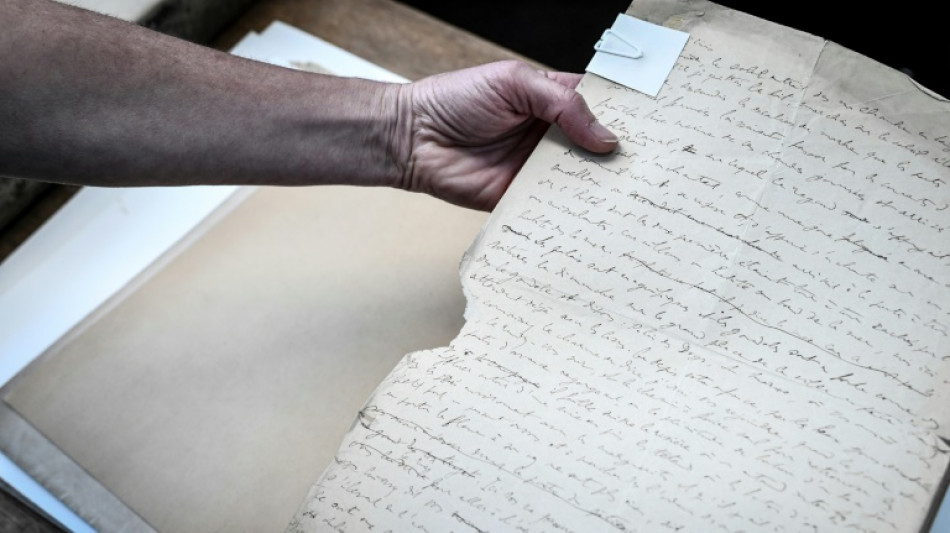
-
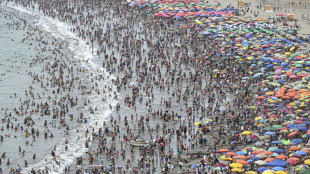 One of Lima's top beaches to close Sunday over pollution
One of Lima's top beaches to close Sunday over pollution
-
'Nothing is impossible': Shaidorov shocks favourite Malinin to make history

-
 Malinin wilts at Olympics as Heraskevych loses ban appeal
Malinin wilts at Olympics as Heraskevych loses ban appeal
-
Bhatia joins Hisatsune in Pebble Beach lead as Fowler surges

-
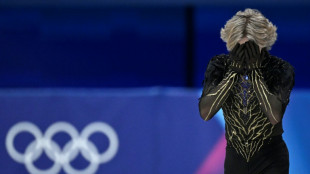 Malinin meltdown hands Shaidorov Olympic men's figure skating gold
Malinin meltdown hands Shaidorov Olympic men's figure skating gold
-
Top seed Fritz makes ATP Dallas semis with fantastic finish

-
 Patriots star receiver Diggs pleads not guilty to assault charges
Patriots star receiver Diggs pleads not guilty to assault charges
-
Havana refinery fire under control as Cuba battles fuel shortages
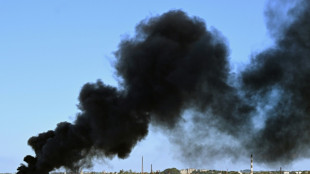
-
 Peru Congress to debate impeachment of interim president on Tuesday
Peru Congress to debate impeachment of interim president on Tuesday
-
Snowboard veteran James targets 2030 Games after Olympic heartbreak

-
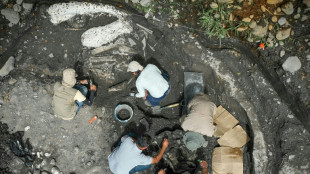 Costa Rica digs up mastodon, giant sloth bones in major archaeological find
Costa Rica digs up mastodon, giant sloth bones in major archaeological find
-
Trump says change of power in Iran would be 'best thing'

-
 Ukrainian skeleton racer Heraskevych loses appeal against Olympic ban
Ukrainian skeleton racer Heraskevych loses appeal against Olympic ban
-
Paris police shoot dead knife man at Arc de Triomphe

-
 Japan's Totsuka wins Olympic halfpipe thriller to deny James elusive gold
Japan's Totsuka wins Olympic halfpipe thriller to deny James elusive gold
-
Canada's PM due in mass shooting town as new details emerge

-
 Neto treble fires Chelsea's FA Cup rout of Hull
Neto treble fires Chelsea's FA Cup rout of Hull
-
Arbitrator rules NFL union 'report cards' must stay private

-
 Dortmund thump Mainz to close in on Bayern
Dortmund thump Mainz to close in on Bayern
-
WHO sets out concerns over US vaccine trial in G.Bissau

-
 Skeleton racer Weston wins Olympic gold for Britain
Skeleton racer Weston wins Olympic gold for Britain
-
Ex-CNN anchor pleads not guilty to charges from US church protest

-
 Berlin premiere for pic on jazz piano legend Bill Evans
Berlin premiere for pic on jazz piano legend Bill Evans
-
Fire at refinery in Havana as Cuba battles fuel shortages
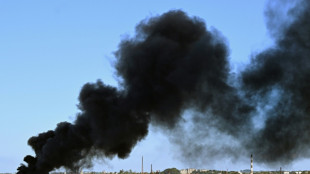
-
 A Friday night concert in Kyiv to 'warm souls'
A Friday night concert in Kyiv to 'warm souls'
-
PSG stunned by rampant Rennes, giving Lens chance to move top

-
 Japan's Totsuka wins Olympic halfpipe thriller as James misses out on gold
Japan's Totsuka wins Olympic halfpipe thriller as James misses out on gold
-
Indian writer Roy pulls out of Berlin Film Festival over Gaza row

-
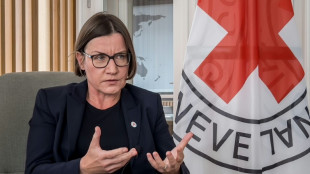 Conflicts turning on civilians, warns Red Cross chief
Conflicts turning on civilians, warns Red Cross chief
-
Europe calls for US reset at security talks

-
 Peru leader under investigation for influence peddling
Peru leader under investigation for influence peddling
-
Rising star Mboko sets up Qatar Open final against Muchova

-
 Canada PM to mourn with grieving town, new details emerge on shooter
Canada PM to mourn with grieving town, new details emerge on shooter
-
US waives Venezuela oil sanctions as Trump says expects to visit

-
 NBA star Chris Paul retires at age 40 after 21 seasons
NBA star Chris Paul retires at age 40 after 21 seasons
-
WTO chief urges China to shift on trade surplus

-
 Vonn hoping to return to USA after fourth surgery on broken leg
Vonn hoping to return to USA after fourth surgery on broken leg
-
Trump sending second aircraft carrier to pile pressure on Iran

-
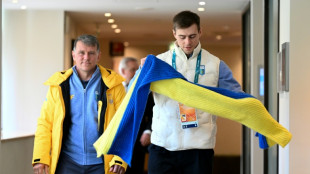 Heraskevych loses Olympics disqualification appeal, Malinin eyes second gold
Heraskevych loses Olympics disqualification appeal, Malinin eyes second gold
-
Mercedes have 'taken a step back': Russell

-
 Madagascar cyclone death toll rises to 40, water, power still out
Madagascar cyclone death toll rises to 40, water, power still out
-
Earl says England inspired by last year's Calcutta Cup

-
 Stocks sluggish as AI disruption worries move to fore
Stocks sluggish as AI disruption worries move to fore
-
USA romp past Dutch in T20 World Cup to keep Super Eight hopes alive

-
 De Minaur scraps past local legend van de Zandschulp
De Minaur scraps past local legend van de Zandschulp
-
Ukrainian Heraskevych loses appeal against Olympics disqualification

-
 Ghana rallies round traditional tunic after foreign mockery
Ghana rallies round traditional tunic after foreign mockery
-
Forest set to hire former Wolves boss Pereira: reports

-
 England rugby captain Itoje slams Ratcliffe's 'ridiculous' immigration comments
England rugby captain Itoje slams Ratcliffe's 'ridiculous' immigration comments
-
Europe should speak to Russia with 'one voice', Putin foe says
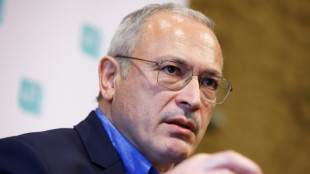

A bluffer's guide to Proust 100 years after his death
France's Marcel Proust, who died 100 years ago on Friday, is regarded as one of the greatest novelists of all time -- but few can truthfully claim to have read his 2,400-page masterpiece "In Search of Lost Time".
For those waiting for another lockdown to curl up with his magnum opus, here are five fun facts you can drop into a conversation that will make you sound like an expert.
- Unwanted masterpiece -
In 1909 Proust launched himself into what would become his masterwork, a novel about memory and the essence of art.
The project grew from one book to a second in 1912 and a third the following year.
"In Search of Lost Time" eventually grew into seven volumes, four published in Proust's lifetime and three after his death at the age of 51 in 1922.
But finding a publisher was not easy.
After receiving three rejections for the first volume "Swann's Way", Proust decided to self-publish, with the help of Grasset publishing house.
Nobel-winning novelist Andre Gide, who was an editor at the time at NFR publishing house (which later became Gallimard), was among those who passed on Proust's dense prose.
"The rejection of this book will remain the NRF's greatest mistake," Gide later wrote to Proust, calling it "one of the most bitter regrets of my life".
Gallimard managed to lure Proust back with his second novel in 1916, "In the Shadow of Young Girls in Flower", which won the Goncourt Prize, France's top literary award.
- 'Oh': on winning top prize -
When the Goncourt jury announced Proust as the winner in 1919, Gallimard rushed to give the author the good news.
Arriving at his home near the Champs-Elysees, Gallimard found Proust, an inveterate snoozer, asleep in a room filled with steam treatments for his asthma.
"Oh?" said the author flatly, on hearing he had won the literary equivalent of the jackpot.
His win sparked an outcry by the French left which backed Roland Dorgeles' epic account of life in the trenches in World War I over what they characterised as Proust's self-indulgent ruminations on the passage of time.
Proust's critics further argued he was too old -- he was 48 at the time -- and too rich to win the award which came with 5,000 francs in prize money.
- On and on and on -
"For a long time, I went to bed early...", is how "In Search of Lost Time" begins, and it's also how the story ends for many a reader, who find Proust's prose to have soporific qualities.
Poetic and dreamy, sprinkled with dashes and parentheses, his sentences are exceptionally long -- on average 30 words, twice that of most novelists.
- The madeleine was nearly toast -
The madeleine or mini sponge cake that has become the most famous detail in all seven volumes makes its appearance early in the first book.
For the protagonist, Marcel, tasting the little cake releases a flurry of vivid memories, giving him access to the "lost time" he is searching for.
"As soon as I had recognised the taste of madeleine dipped in lime-blossom tea that my aunt used to give me...", he swoons.
And yet the mighty madeleine was nearly a humble piece of toast, as early drafts of the scene discovered in Proust's notebooks reveal.
- Maternal mollycoddling -
Proust suffered most of his life with severe asthma, and although he liked to socialise -- he had some torturous secret homosexual love affairs -- he also spent long stretches in bed, writing with a tray on his knees.
His neurologist father urged his sickly son to get out in the fresh air and play sport, noting that asthma was not contagious.
But Proust's mother was prone to mollycoddling, and from 1906 he followed her counsel, staying cloistered inside like a hermit, with a steady supply of caffeine and aspirin.
His respiratory problems would finally get the better of him. He died after pneumonia that turned into bronchitis and then an abscess on the lungs.
G.AbuHamad--SF-PST

